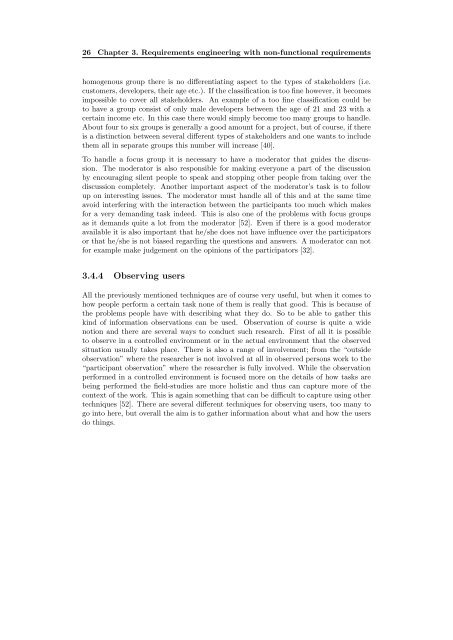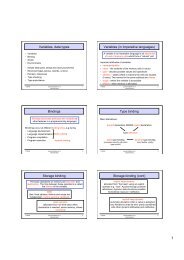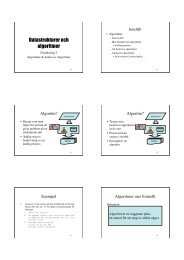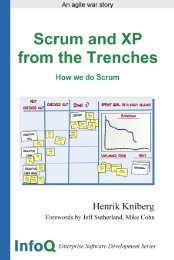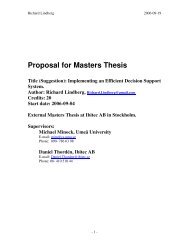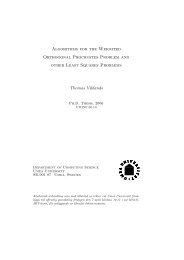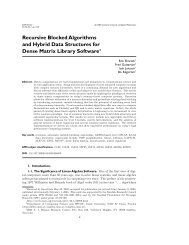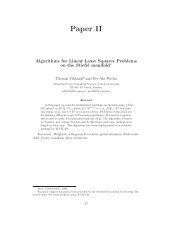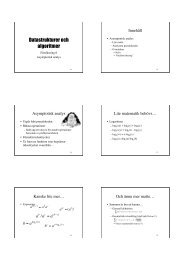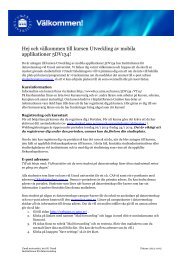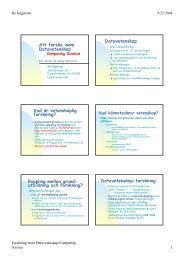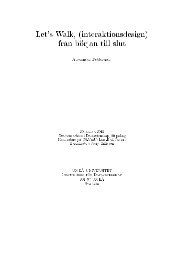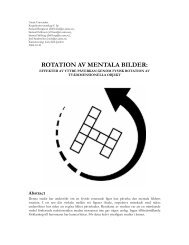Designing a persistent online strategy game - Department of ...
Designing a persistent online strategy game - Department of ...
Designing a persistent online strategy game - Department of ...
Create successful ePaper yourself
Turn your PDF publications into a flip-book with our unique Google optimized e-Paper software.
26 Chapter 3. Requirements engineering with non-functional requirements<br />
homogenous group there is no differentiating aspect to the types <strong>of</strong> stakeholders (i.e.<br />
customers, developers, their age etc.). If the classification is too fine however, it becomes<br />
impossible to cover all stakeholders. An example <strong>of</strong> a too fine classification could be<br />
to have a group consist <strong>of</strong> only male developers between the age <strong>of</strong> 21 and 23 with a<br />
certain income etc. In this case there would simply become too many groups to handle.<br />
About four to six groups is generally a good amount for a project, but <strong>of</strong> course, if there<br />
is a distinction between several different types <strong>of</strong> stakeholders and one wants to include<br />
them all in separate groups this number will increase [40].<br />
To handle a focus group it is necessary to have a moderator that guides the discussion.<br />
The moderator is also responsible for making everyone a part <strong>of</strong> the discussion<br />
by encouraging silent people to speak and stopping other people from taking over the<br />
discussion completely. Another important aspect <strong>of</strong> the moderator’s task is to follow<br />
up on interesting issues. The moderator must handle all <strong>of</strong> this and at the same time<br />
avoid interfering with the interaction between the participants too much which makes<br />
for a very demanding task indeed. This is also one <strong>of</strong> the problems with focus groups<br />
as it demands quite a lot from the moderator [52]. Even if there is a good moderator<br />
available it is also important that he/she does not have influence over the participators<br />
or that he/she is not biased regarding the questions and answers. A moderator can not<br />
for example make judgement on the opinions <strong>of</strong> the participators [32].<br />
3.4.4 Observing users<br />
All the previously mentioned techniques are <strong>of</strong> course very useful, but when it comes to<br />
how people perform a certain task none <strong>of</strong> them is really that good. This is because <strong>of</strong><br />
the problems people have with describing what they do. So to be able to gather this<br />
kind <strong>of</strong> information observations can be used. Observation <strong>of</strong> course is quite a wide<br />
notion and there are several ways to conduct such research. First <strong>of</strong> all it is possible<br />
to observe in a controlled environment or in the actual environment that the observed<br />
situation usually takes place. There is also a range <strong>of</strong> involvement; from the “outside<br />
observation” where the researcher is not involved at all in observed persons work to the<br />
“participant observation” where the researcher is fully involved. While the observation<br />
performed in a controlled environment is focused more on the details <strong>of</strong> how tasks are<br />
being performed the field-studies are more holistic and thus can capture more <strong>of</strong> the<br />
context <strong>of</strong> the work. This is again something that can be difficult to capture using other<br />
techniques [52]. There are several different techniques for observing users, too many to<br />
go into here, but overall the aim is to gather information about what and how the users<br />
do things.


